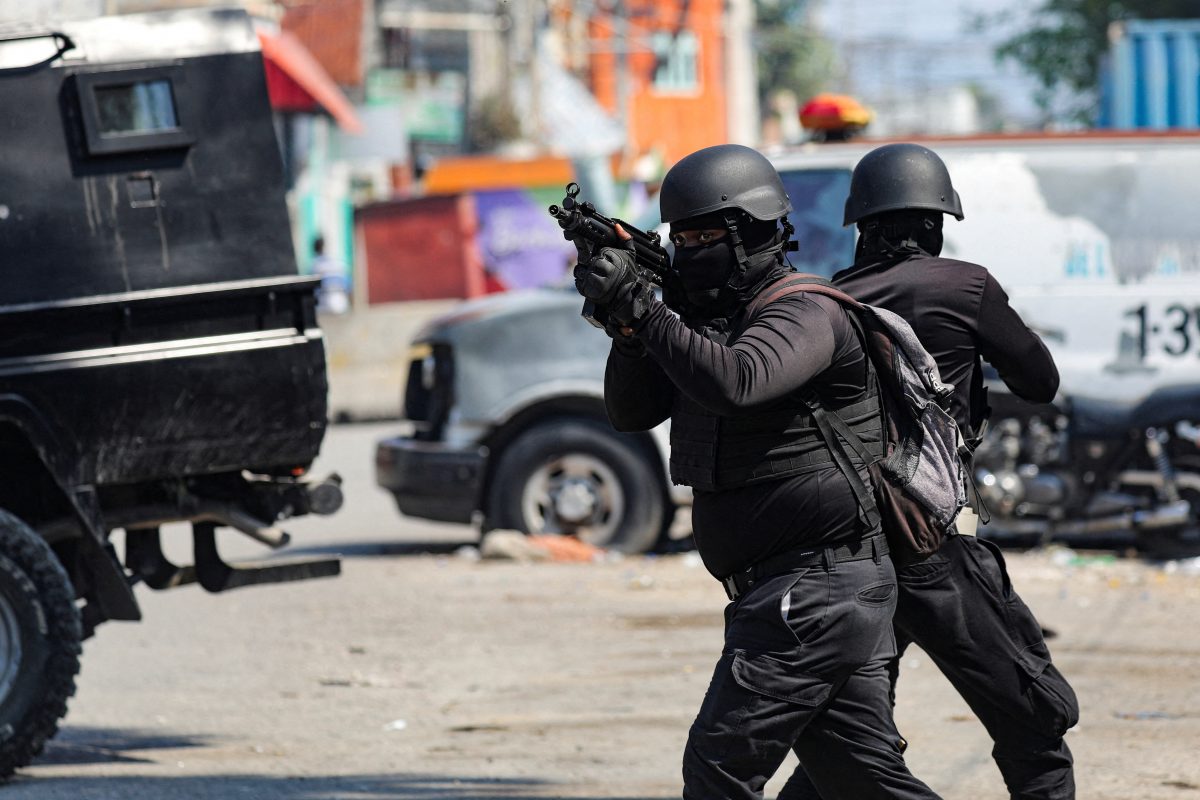WASHINGTON, (Reuters) – U.S. lawmakers are refusing to release millions of dollars in funding that Washington views as critical to help tackle spiraling violence in Haiti, in another potential stumbling block for the international force.
Representatives Michael McCaul, Republican chairman of the House of Representatives Foreign Affairs Committee, and Senator Jim Risch, the top Republican on Senate Foreign Relations, have both put “holds” on $40 million requested by the U.S. State Department, warning the administration they need “a lot more details” before it gets more funding.
Congressional aides said the money being held could prevent deployment of the Kenyan police force to Haiti, unless another country stepped up to fill in the gap. The $40 million would cover costs essential to the mission.
The State Department is engaging with Congress on approval for the funds, a senior State Department official said.
“We think it’s critical for deployment,” the official said, speaking on condition of anonymity.
Gang violence has spiraled in Haiti, fueling a humanitarian crisis, cutting off food supplies and forcing hundreds of thousands from their homes. Prime Minister Ariel Henry pledged on Monday to resign as soon as a transition council and temporary leader were chosen.
Countries have been slow to offer support and doubts have grown after Kenya – which had pledged to lead it – announced it was pausing the deployment after Henry announced he would resign.
Kenya’s government pledged 1,000 officers to lead an international security force last July, but the initiative has been tied up in court challenges and Kenya has asked to be paid upfront.
The U.S. is the largest backer for the force, and U.S. Secretary of State Antony Blinken announced at talks on Monday in Jamaica that the U.S. was upping its pledge to $300 million.
“Given the long history of U.S. involvement in Haiti with few successful results, the administration owes Congress a lot more details in a more timely manner before it gets more funding,” Risch and McCaul said in a joint statement.
The lawmakers said President Joe Biden’s administration had only sent them a “rough plan” to address the crisis. They have concerns over whether Kenyan courts would allow the deployment and whether the force could get to Port-au-Prince.
The first State Department official said 68 briefings had been held with Congress on the situation in Haiti and the force, adding that $50 million in funds, including what is being held, would go toward equipment for the force, training, personnel kits and uniforms.
Of that, $10 million that has been released has already been obligated, including to reimburse Kenya for training, the official said.
The Department of Defense’s contribution of $200 million, which would support logistics, supplies and services to contributing countries, is already approved by Congress, a Pentagon spokesperson said.
A second senior State Department official said the U.S. has also been encouraging other nations to make contributions, but the challenge is “unprecedented global crises,” including Russia’s invasion of Ukraine and the humanitarian situation in Gaza.
Keith Mines, vice president for Latin America at the U.S. Institute of Peace, said he would be surprised if Kenya can send its police before receiving funds.
“I don’t think they can go at all until the funding is there,” Mines said.






